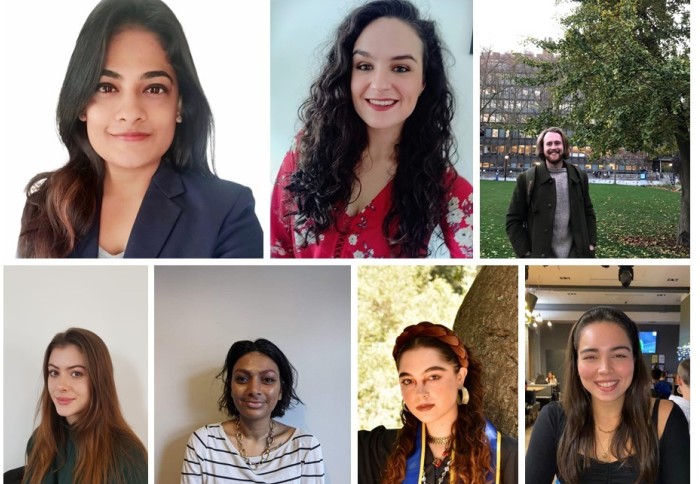Communicators in Residence launch Hidden Histories

In partnership with the Institute of Infection, SciComm Master's students have published their first project as Communicators in Residence.
A new initiative for 2021-22 sees seven of our Science Communication Master's students working as communicators in residence as part of a very worthwhile collaboration with the Institute of Infection.
Hidden Histories of Infectious Disease Research is the first project to come out of the year-long collaboration with the Institute. Alongside their studies, Master's students Clare Baker, Charlie Delilkan, Olivia Jani, Robert Miller, Mayah Pico, Anjana Vijay and Holly Worrall will be working on communication pieces from the traditional to the more innovative, with the aim of disseminating infection research and providing a platform for public engagement whilst exploring the mission of the Institute to promote interdisciplinary activities.
In late 2021, infection researchers from across the College were invited to work with the communicators in residence via a call for applications. Testament to the students' abilities, the call yielded a large amount of interest from over 15 research groups, which were then narrowed down to two projects.
The communicators in residence - each with their own set of expertise ranging from astrosociology, human science and healthcare, biology, art, neuroscience and bioarchaeology - have their work cut out. Not only are they deepening and sharing their own existing knowledge and skills, they rapidly have to learn about new areas of infection-related research, and generate distinctive outputs considerate of the audience experience.
Read, watch and learn about Hidden Histories of Infectious Disease Research
The work reinforces the importance of having a range of voices and perspectives in science communication and the power of interdisciplinarity. As Professor Pantelis Georgiou (Director of the Bio-Inspired Matabolic Technology Laboratory) aptly says in the Smart Diagnostics for Malaria video: “Innovations don’t happen in silos, they happen at the boundaries between disciplines”.
Hidden Histories was completed in late February and sees the communicators using a variety of media and multimedia to explore lesser-considered histories and voices as well as the role of interdisciplinarity in infection research. The communicators in residence will now move on to the second project with a further project output expected after Easter.
Article text (excluding photos or graphics) © Imperial College London.
Photos and graphics subject to third party copyright used with permission or © Imperial College London.
Reporter
Ms Cleo Bowen
Centre for Languages, Culture and Communication